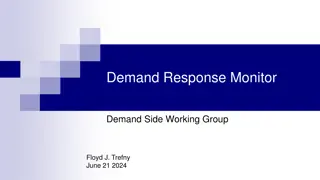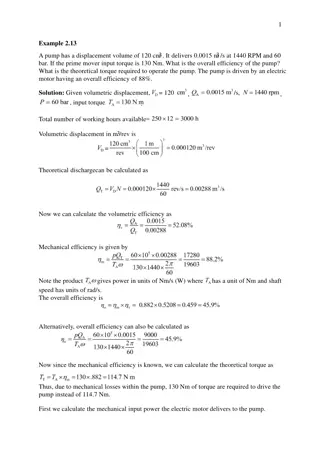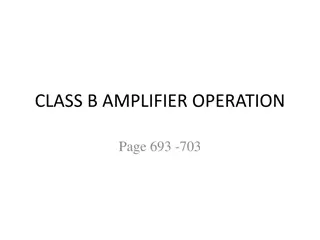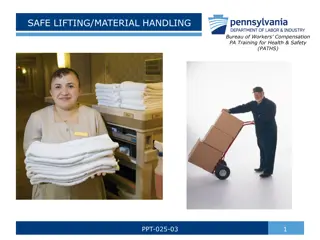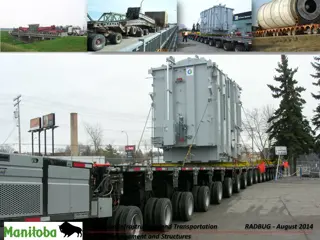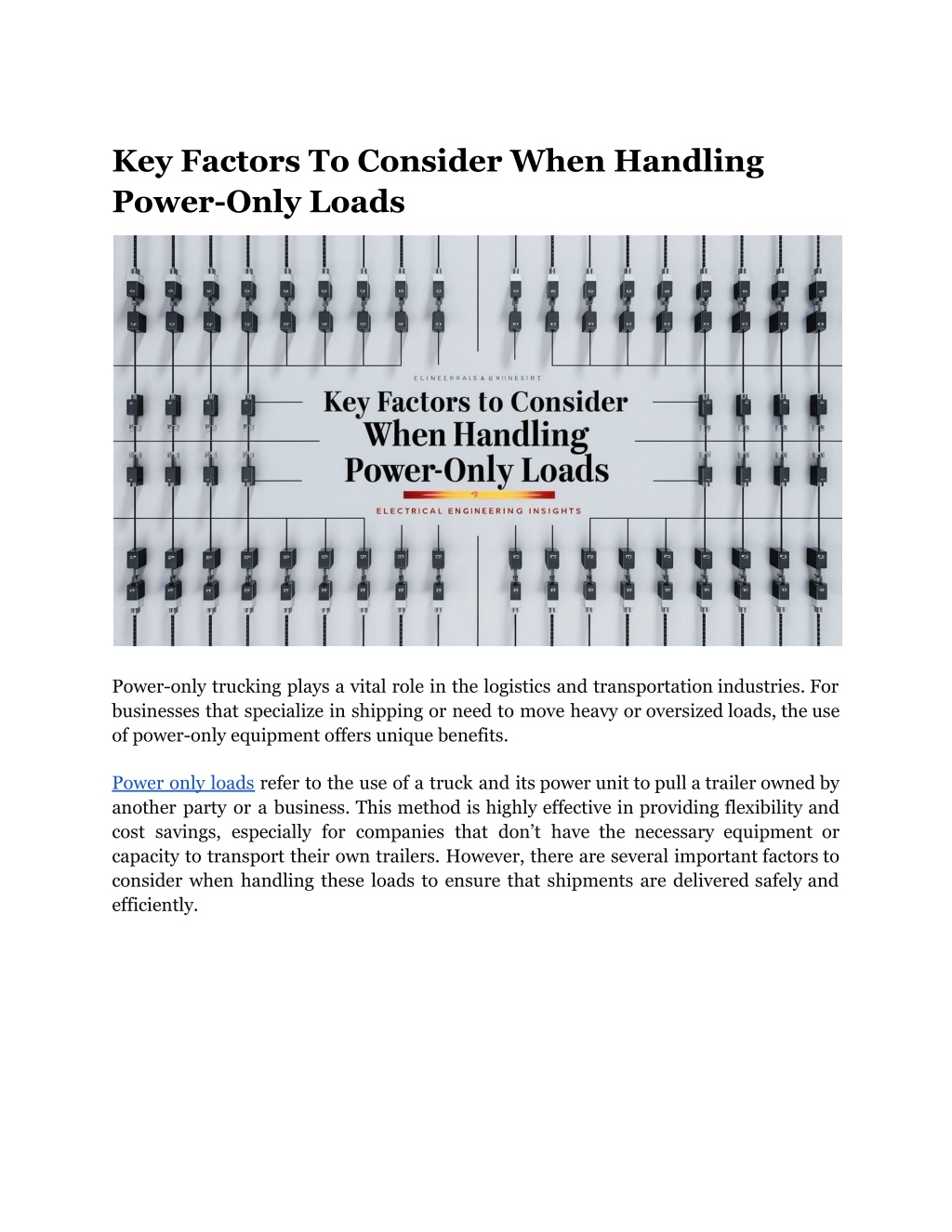
Key Factors To Consider When Handling Power-Only Loads
Discover essential tips to manage power-only loads effectively. Learn how to optimize operations and ensure seamless transportation
Download Presentation

Please find below an Image/Link to download the presentation.
The content on the website is provided AS IS for your information and personal use only. It may not be sold, licensed, or shared on other websites without obtaining consent from the author. Download presentation by click this link. If you encounter any issues during the download, it is possible that the publisher has removed the file from their server.
E N D
Presentation Transcript
Key Factors To Consider When Handling Power-Only Loads Power-only trucking plays a vital role in the logistics and transportation industries. For businesses that specialize in shipping or need to move heavy or oversized loads, the use of power-only equipment offers unique benefits. Power only loads refer to the use of a truck and its power unit to pull a trailer owned by another party or a business. This method is highly effective in providing flexibility and cost savings, especially for companies that don t have the necessary equipment or capacity to transport their own trailers. However, there are several important factors to consider when handling these loads to ensure that shipments are delivered safely and efficiently.
Key Factors to Consider When Handling Power-Only Loads 1. Right Equipment for Power Only Loads The first consideration is selecting the appropriate equipment. A typical power-only setup involves a truck, often a semi-truck, that will tow a trailer. However, depending on the load being carried, the type of truck and the configuration of the trailer may vary. Truck specifications: The size, capacity, and engine power of the truck are all essential factors in determining whether it is capable of pulling a particular trailer. Trailer compatibility: Ensure that the trailer being hauled is compatible with the power unit being used. Different trailers, such as flatbeds, reefers, or dry vans, may have varying weight distributions, which impact the towing capacity. Choosing the right equipment is essential to avoid issues with load capacity, towing strength, and safety during transport. 2. Weight Limits and Load Distribution Dealing with these loads means understanding the weight distribution and the overall capacity of both the truck and the trailer. Overloading can lead to significant damage to both the trailer and the truck, as well as unsafe driving conditions. Weight limits: Different trucks and trailers have weight limitations specified by the manufacturer, as well as regulations set by local, state, or federal authorities. These weight limits must be adhered to at all times to avoid penalties and maintain safe conditions on the road. Load distribution: Ensuring the weight is evenly distributed across the truck and trailer is crucial for safe towing. Uneven weight distribution can affect the balance and stability of the entire rig, leading to potential accidents or accidents during transport. 3. Regulatory Compliance and Documentation One of the most important aspects is ensuring compliance with all relevant laws and regulations. These regulations differ based on location, the type of cargo being hauled, and whether it s a local or interstate shipment. Licensing and permits: Ensure that all necessary permits and licenses are in place before starting any transport. The process often involves specialized loads, such as oversized or hazardous cargo, which require specific permits. Compliance with DOT regulations: The U.S. Department of Transportation (DOT) and local regulatory bodies impose strict safety standards and weight
limits for all trucks. Compliance with these regulations is essential to avoid fines, delays, and potential accidents. Insurance coverage: Insurance coverage is essential. The trailer and its contents may not be covered under the carrier s policy unless it is explicitly stated. Make sure both the truck and the trailer have the appropriate coverage to protect against damage, theft, or accidents. Proper documentation and regulatory compliance are key to avoiding unnecessary legal issues and ensuring that all shipments are handled safely. 4. Reliable Power-Only Dispatch Services Power only dispatch services are invaluable for coordinating the logistics of trucking operations. A dedicated dispatch service ensures that the correct trucks are assigned to the right loads and that all delivery schedules are met efficiently. Load management: Dispatch services help organize and manage the scheduling of power-only trucking, ensuring the timely pickup and delivery of loads. Having a reliable dispatch service can minimize delays and ensure that the correct equipment is available when needed. Real-time tracking: With advanced dispatch technology, businesses can monitor the location and progress of the truck at all times. This can be essential for maintaining communication with clients and ensuring that loads arrive on schedule. Optimization of routes: Effective dispatch services also provide route planning, helping minimize fuel costs, improve efficiency, and avoid traffic delays. Ensuring that the most efficient route is taken can lead to considerable cost savings. Using professional dispatch services helps streamline the entire operation, ensuring better efficiency and productivity. 5. Driver Experience and Training The driver handling power only trucking plays a significant role in the success of the operation. An experienced and well-trained driver ensures that the truck and trailer are operated safely, especially in challenging road conditions or when dealing with oversized loads. Towing experience: Towing requires specialized knowledge, including how to handle the truck and trailer safely, understanding the dynamics of turning with a trailer, and maintaining control at various speeds.
Knowledge of regulations: Drivers must also be aware of the regulations governing weight limits, load security, and safety measures, such as the requirement for securing oversized loads. A well-trained driver ensures the safety of both the cargo and the other road users, helping avoid accidents and costly damages. 6. Maintaining Equipment and Preventative Maintenance Routine maintenance is essential when dealing with power-only loads. Neglecting maintenance can lead to equipment failure, which can cause delays and, in the worst case, lead to accidents. Truck and trailer inspections: Regular inspections are critical to ensure that all parts of the truck and trailer are functioning correctly. This includes checking tires, brakes, electrical systems, and the truck's engine. Preventative measures: Preventive maintenance, such as oil changes, tire rotations, and brake checks, can help prevent breakdowns and extend the life of the equipment. The Bottom Line To sum up, effectively handling power only loads requires careful planning and attention to detail. With the support of skilled drivers and expert dispatch services, your business can navigate the complexities of freight transportation with confidence. When it comes to power-only trucking operations, reliability and efficiency are key. At Tech Rig Dispatch, we specialize in offering top-notch power-only dispatch services that streamline the logistics of your trucking needs. Our experienced team ensures that the right equipment is dispatched at the right time, helping you save on costs and improve delivery times. Reach out today to enhance your operations with our comprehensive dispatch solutions, and let us help you keep your business running smoothly! Site Article: Key Factors To Consider When Handling Power-Only Loads







